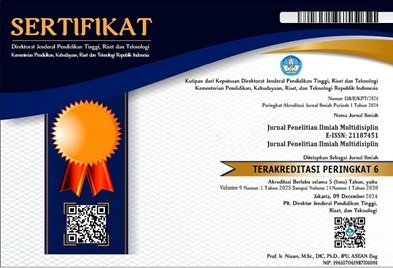EVALUASI KEBIJAKAN REFORMASI BIROKRASI DI BBPMP JATIM TERHADAP PENCAPAIAN ZONA INTEGRITAS, WBK, DAN WBBM
Kata Kunci:
Reformasi Birokrasi, Zona Integritas (ZI), Wilayah Bebas dari Korupsi (WBK) dan Wilayah Birokrasi Bersih dan Melayani (WBBM)Abstrak
Penelitian ini mengevaluasi kebijakan public dalam reformasi birokrasi di Indonesia, dengan focus pada dampaknya terhadap pencapaian Zona Integritas (ZI), Wilayah Bebas dari Korupsi (WBK), dan Wilayah Birokrasi Bersih dan Melayani (WBBM). Reformasi birokrasi merupakan Langkah kunci dalam mencapai pemerintahan yang profesional dan berintegritas, sesuai dengan Grand Design Reformasi Birokrasi 2010-2025. Meskipun telah ada kemajuan, penelitian ini mengidentifikasi adanya celah dalam implementasi reformasi yang menghambat efektivitasnya. Metode yang digunakan adalah kualitatif deskriptif, melalui wawancara yang mendalam dan diskusi kelompok terfokus dengan Aparatur Sipil Negara (ASN) dan pengguna layanan. Hasil penelitian menunjukkan bahwa kinerja ASN dipengaruhi oleh faktor internal dan eksternal, termasuk kurangnya komitmen pimpinan, pemahaman yang tidak memadai tentang ZI, serta lingkungan kerja yang tidak kondusif. Rekomendasi perbaikan mencakup integrasi ZI dengan tugas inti ASN, kolaborasi dengan pemangku kepentingan Pendidikan, dan pengembangan kurikulum berorientasi integritas. Kesimpulan dari penelitian ini menekankan perlunya perbaikan berkelanjutan dalam penerapan reformasi birokrasi untuk mencapai predikat WBK dan WBBM secara efektif, serta pentingnya dukungan kebijakan dan anggaran dari pemerintah untuk mendukung keberhasilan program Zona Integritas.
This research evaluates public policy in bureaucratic reform in Indonesia, focusing on its impact on the achievement of Integrity Zones (ZI), Areas Free from Corruption (WBK), and Clean and Serving Bureaucratic Areas (WBBM). Bureaucratic reform is a key step in achieving a government of professionalism and integrity, in accordance with the Grand Design of Bureaucratic Reform 2010-2025. Although there has been progress, this research identifies gaps in the implementation of reforms that hinder their effectiveness. The method used was descriptive qualitative, through in-depth interviews and focus group discussions with State Civil Apparatus (ASN) and service users. The results showed that ASN performance is affected by internal and external factors, including lack of leadership commitment, inadequate understanding of ZI, and an unconducive work environment. Recommendations for improvement include integration of ZI with ASN's core tasks, collaboration with Education stakeholders, and development of an integrity-oriented curriculum. The conclusion of this study emphasizes the need for continuous improvement in the implementation of bureaucratic reforms to effectively achieve the WBK and WBBM predicates, as well as the importance of policy and budget support from the government to support the success of the Integrity Zone program.





